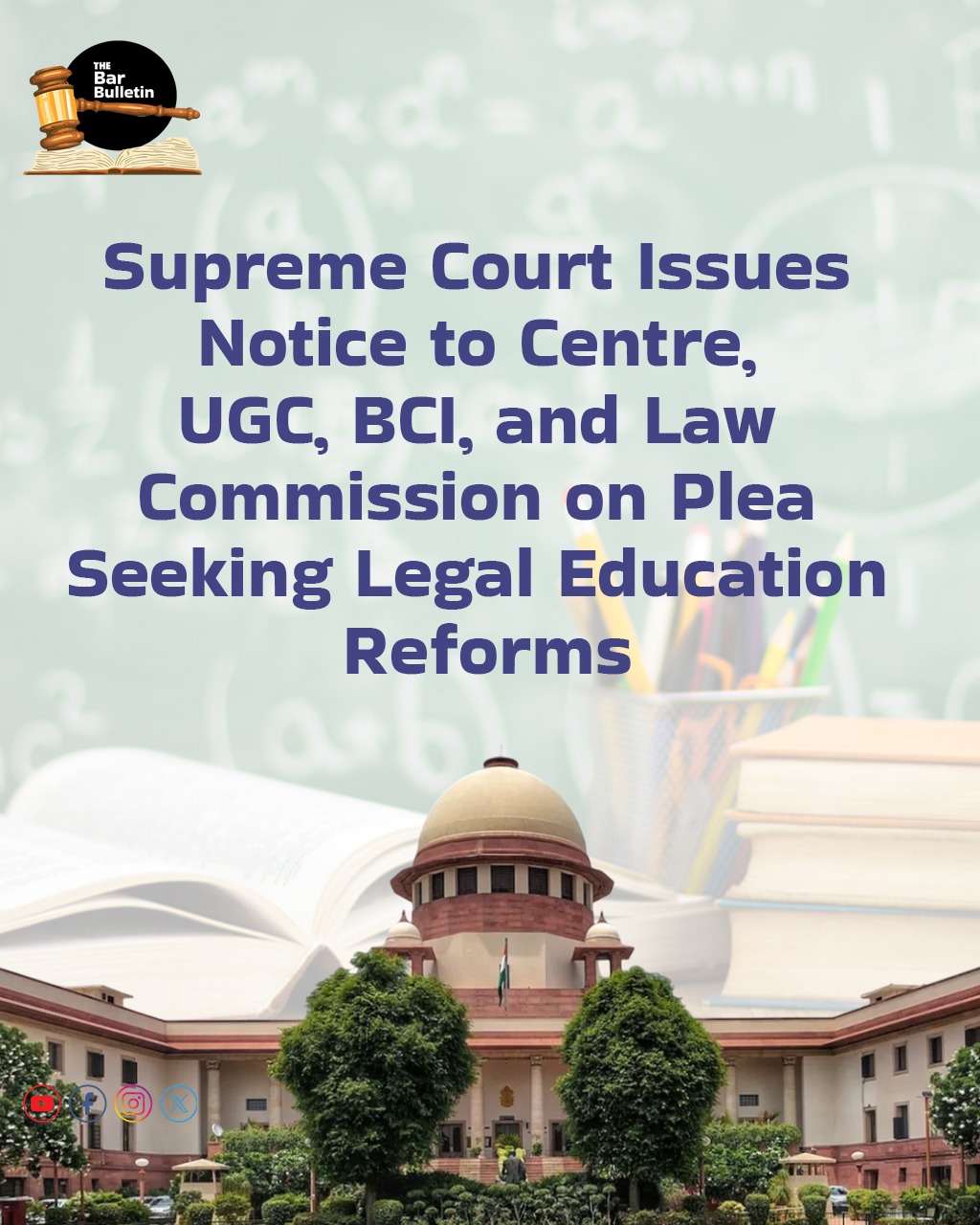The Supreme Court of India has issued notice to the Ministries of Education and Law & Justice, the University Grants Commission (UGC), the Bar Council of India (BCI), and the Law Commission of India on a Public Interest Litigation (PIL) seeking the constitution of a Legal Education Commission.
The PIL, filed by Ashwini Kumar Upadhyay, a practicing advocate, urges the Centre to set up an Expert Committee comprising eminent educationists, jurists, retired judges, and professors to review the curriculum, syllabus, and duration of the LLB and LLM programs across India.
The petitioner argues that the current five-year integrated law courses (BA-LLB/BBA-LLB) are excessively long, financially burdensome for students from economically weaker sections, and inconsistent with the objectives of the National Education Policy (NEP) 2020, which promotes flexibility, interdisciplinarity, and shorter graduation pathways.
The petition contends that the inclusion of unrelated subjects such as sociology, political science, and economics in law degrees unnecessarily inflates the duration and cost of legal education, dissuading talented students from pursuing law. It also highlights that NLUs conduct up to 50 exams in five years, of which only about 32 are core legal subjects.
Taking note of the issues raised, the Supreme Court has sought responses from the respondents, including the Bar Council of India, which regulates legal education.



